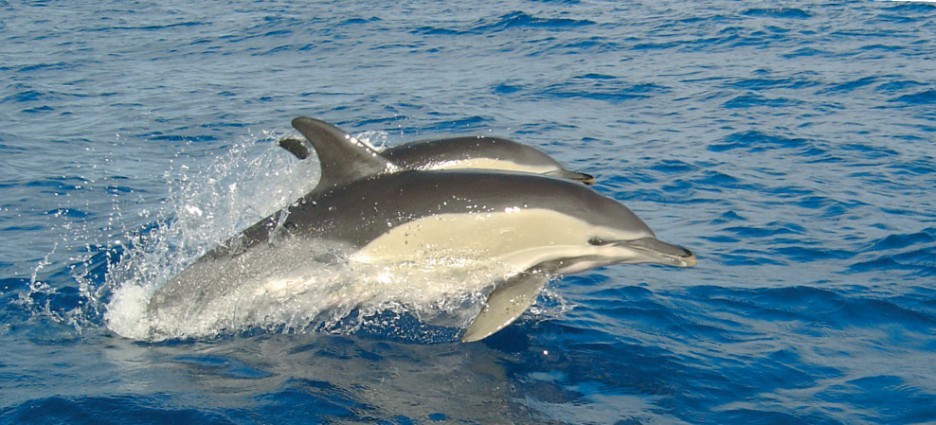The islands of the Azores are home to a wide variety of wildlife, especially in the waters off their shores. Those on an Azores holiday can encounter some of the many species that make the mid-Atlantic their home for some of all of the year. Here are just a few examples of what visitors to the Azores can spot
Dolphins
The summer waters around the Azores are home to numerous Common, Bottlenose, Risso and Atlantic Spotted dolphins and while nothing is guaranteed (after all, you’re in the Atlantic Ocean and not an aquarium) the chances of an encounter are very high. While trips out to watch the dolphins from the comfort of a boat are popular, for the more adventurous visitor there is the chance to jump into the water and have an unforgettable face-to-face dolphin encounter.
Whales
The Azores are renowned as one of the best places in the world to look for whales, with sperm whales, baleen whales and pilot whales often swimming in the waters near the islands in the summer months. The peak season for whale watching is throughout July and August, although you can enjoy a whale watching trip as late as October.
Turtles
In addition, turtles are often spotted in the waters off the shores of the Azores. Leatherback turtles, typically over a metre in length and sometimes weighing up to a tonne in weight, are often spotted in the cool waters as they search for their favourite snack, jellyfish. Loggerhead turtles meanwhile can often be found around the Azores, feasting on Portuguese man-o-war, a jelly-like creature armed with a fiercely venomous sting.
Bird watching
Given the location of the Azores it’s perhaps not surprising that the islands are a popular resting stop for migratory birds, offering them a brief stop on their inter-continental journeys. The Eurasian widgeon is a common sighting in lakes around the Azores, wintering here from October onwards. There are also several species that are endemic to the islands, including the Azores Bullfinch (Pyrrhula murina) which can be found in a small area of Sao Miguel. In total around 400 species have been reported around the Azores.
Land mammals
While the principal wildlife of the Azores is without doubt found in its waters rather than roaming across its rocky terrain, the Azores noctule is one mammal that is endemic to the islands. The species is unique in that it is thought to be the only variety of bat that hunts its prey (insects) during the daylight. This unusual behaviour is thought to be down to the lack of predators, but whatever the reason it makes it easier for visitors to get a sighting of this creature. While other mammals such as rabbits and hedgehogs live in significant numbers on the Azores, these species have been introduced by humans over recent centuries.





